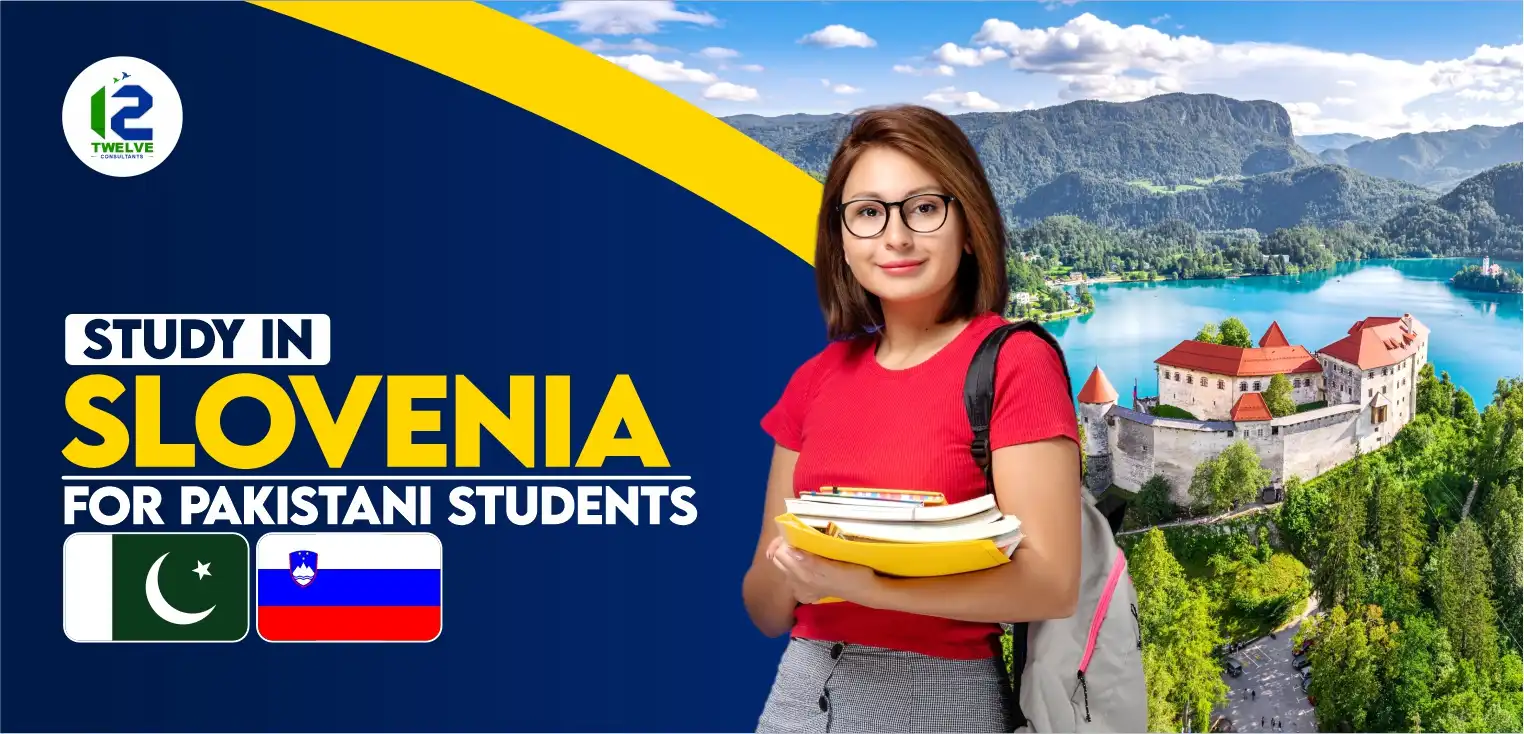

Study in Russia for Nigerian Students
Embarking on an international education journey can be a life-changing experience, opening doors to a world of knowledge, cultural exchange, and global opportunities. One such destination that has been attracting an increasing number of Nigerian students is Russia. Renowned for its rich heritage, breathtaking landscapes, and world-class universities, Russia offers a unique blend of academic excellence and a vibrant cultural experience.
In this blog, we will explore the remarkable opportunities awaiting Nigerian students who choose to study in Russia. From renowned educational institutions and diverse study programs to scholarships and a thriving multicultural environment, Russia provides a conducive setting for personal growth, academic advancement, and a truly global perspective.
Why to Study in Russia from Nigeria
Why choose Russia over other study destinations? Let’s delve into the compelling reasons that make studying in Russia an attractive option for Nigerian students.
- Diverse Academic Programs: Russian universities boast a wide range of academic disciplines, offering a vast selection of undergraduate and postgraduate programs. Whether you aspire to study medicine, engineering, humanities, or business, Russia provides a plethora of options to suit your educational goals.
- Renowned Universities: Russia is home to globally recognized universities that consistently rank high in international university rankings. Institutions like Lomonosov Moscow State University, Saint Petersburg State University, and Novosibirsk State University are esteemed for their academic excellence, cutting-edge research facilities, and renowned faculty members.
- Affordable Tuition Fees: Compared to many other study destinations, Russia offers affordable tuition fees, making quality education accessible to Nigerian students. The cost of living in Russia is also relatively reasonable, allowing students to enjoy a comfortable lifestyle without straining their finances.
- Scholarships and Funding Opportunities: Nigerian students can explore various scholarships and funding options to support their studies in Russia. The Russian government, as well as international organizations and universities, offer scholarships specifically designed for international students, including those from Nigeria.
- Cultural Diversity and Vibrant Student Life: Studying in Russia exposes Nigerian students to a diverse and multicultural environment. Engage with students from around the world, experience different traditions, and broaden your global perspective. Additionally, Russia’s vibrant cities provide a plethora of cultural, artistic, and recreational activities, ensuring an exciting and fulfilling student life.
- Quality Education System: Russian universities are renowned for their strong emphasis on academic rigor and research. Studying in Russia equips Nigerian students with valuable skills and knowledge, preparing them for successful careers and global opportunities.
Study in Russia from Nigeria Fee Structure
|
Field of Study |
Average Tuition Fees per Year (in USD) |
Average Tuition Fees per Semester (in USD) |
|
Medicine |
$3,500 – $8,000 |
$1,750 – $4,000 |
|
Engineering |
$2,500 – $6,000 |
$1,250 – $3,000 |
|
Computer Science |
$2,000 – $5,000 |
$1,000 – $2,500 |
|
Business |
$2,000 – $4,500 |
$1,000 – $2,250 |
|
Humanities |
$1,500 – $3,500 |
$750 – $1,750 |
|
Social Sciences |
$1,500 – $3,500 |
$750 – $1,750 |
|
Natural Sciences |
$1,500 – $3,500 |
$750 – $1,750 |
|
Architecture |
$2,500 – $5,000 |
$1,250 – $2,500 |
|
Fine Arts |
$1,500 – $4,000 |
$750 – $2,000 |
|
Pharmacy |
$3,000 – $6,000 |
$1,500 – $3,000 |
Top 10 Universities in Russia for Nigerian Students
- Lomonosov Moscow State University (MSU): As one of the oldest and most prestigious universities in Russia, MSU offers a wide range of programs across various disciplines, renowned for its excellence in research and academic achievements.
- Saint Petersburg State University (SPbU): Founded in 1724, SPbU is a leading university known for its strong emphasis on humanities and sciences, offering a vibrant academic environment with numerous research opportunities and a rich cultural heritage.
- Novosibirsk State University (NSU): Located in the academic hub of Novosibirsk, NSU is renowned for its STEM programs and cutting-edge research facilities, providing students with a rigorous education and fostering innovation and scientific advancements.
- Bauman Moscow State Technical University (BMSTU): Specializing in engineering and technology, BMSTU is recognized for its comprehensive range of programs, hands-on learning experiences, and close collaboration with industry partners.
- Tomsk State University (TSU): With a strong focus on research and innovation, TSU offers a wide range of programs in science, engineering, humanities, and social sciences, providing students with a dynamic learning environment and numerous opportunities for academic growth.
- National Research Nuclear University MEPhI: MEPhI is a leading institution for nuclear science and technology education, offering specialized programs in nuclear physics, engineering, and related fields, contributing to advancements in nuclear energy and research.
- Moscow Institute of Physics and Technology (MIPT): Renowned for its programs in physics, mathematics, and computer science, MIPT is known for its rigorous academic curriculum, exceptional faculty, and its reputation for producing high-caliber graduates in scientific and technological fields.
- National Research University Higher School of Economics (HSE): HSE is a modern and dynamic university offering a wide range of programs in economics, social sciences, business, and humanities, providing students with interdisciplinary knowledge and fostering entrepreneurial and analytical skills.
- Kazan Federal University (KFU): Founded in 1804, KFU is one of the oldest universities in Russia, offering diverse programs in science, arts, humanities, and engineering, known for its strong academic traditions, research initiatives, and cultural heritage.
- Ural Federal University (UrFU): Located in Yekaterinburg, UrFU is recognized for its programs in engineering, natural sciences, and social sciences, providing students with a comprehensive education, research opportunities, and a vibrant campus life.
Eligibility Criteria for Nigerian Students in Russia for Bachelors and Masters programs
Eligibility criteria for Nigerian students in Russia may vary depending on the specific university and program. However, here are some general requirements for bachelor’s and master’s programs:
Bachelor’s Programs:
- Educational Qualifications: Nigerian students should have completed their secondary education or its equivalent, such as the Senior School Certificate Examination (SSCE) or West African Senior School Certificate Examination (WASSCE), with a minimum required grade or score.
- Language Proficiency: Proficiency in the language of instruction is essential. For most programs in Russia, the language of instruction is Russian. Nigerian students are usually required to provide proof of their Russian language proficiency, such as passing the Test of Russian as a Foreign Language (TORFL) or equivalent.
- Entrance Examinations: Some universities may require Nigerian students to pass entrance examinations, which could include subjects related to their chosen field of study.
Master’s Programs:
- Educational Qualifications: Nigerian students should have completed a relevant bachelor’s degree or its equivalent from a recognized institution. The degree should be in a field related to the master’s program they wish to pursue.
- Language Proficiency: Similar to bachelor’s programs, proficiency in the language of instruction is crucial. Nigerian students may be required to provide proof of their language proficiency, either in Russian or English, depending on the language of instruction for the specific program.
- Entrance Examinations: Some master’s programs may have additional entrance examinations, which could include subject-specific tests or interviews to assess the candidate’s knowledge and suitability for the program.
Living Cost in Russia for Nigerian students
The cost of living in Russia for Nigerian students can vary depending on the city, lifestyle choices, and individual preferences. Here are some estimated living expenses in Russia:
- Accommodation: The cost of accommodation in Russia can range from $200 to $600 per month, depending on whether you choose to live on-campus in a university dormitory or rent a private apartment. Sharing accommodation with roommates can help reduce costs.
- Food: On average, monthly food expenses can range from $150 to $300. Cooking your meals at home and shopping at local markets or supermarkets can be more cost-effective than eating out frequently.
- Transportation: Public transportation in Russia is relatively affordable. Monthly transportation costs can vary between $20 to $50, depending on the city and your usage of buses, trams, or the metro.
- Utilities: Utilities such as electricity, water, heating, and internet can cost around $50 to $100 per month, depending on your usage and the size of your accommodation.
- Health Insurance: It is essential for Nigerian students to have health insurance coverage while studying in Russia. The cost of health insurance can range from $100 to $300 per year, depending on the coverage and insurance provider.
- Miscellaneous Expenses: Other expenses like textbooks, stationery, mobile phone bills, and leisure activities may vary based on personal preferences. Setting aside around $50 to $100 per month for these expenses is a reasonable estimate.
Required Documents in Russia for Nigerian Students
- Secondary School Certificate: Original and copies of your secondary school leaving certificate (e.g., Senior School Certificate Examination – SSCE, West African Senior School Certificate Examination – WASSCE).
- Transcripts: Official transcripts of academic records from secondary school.
- Identification and Personal Documents:
- Passport: A valid passport with a minimum validity of at least two years.
- Birth Certificate: Original and copies of your birth certificate.
- Passport-sized Photographs: Recent passport-sized photographs with specific dimensions as per the university’s requirements.
- National Identification Card: Copies of your national identification card (e.g., National Identification Number – NIN).
- Language Proficiency:
- Language Test Results: Proof of proficiency in the language of instruction (Russian or English), such as Test of Russian as a Foreign Language (TORFL) or equivalent. This requirement may vary depending on the program and language of instruction.
- Academic Documents:
- Bachelor’s Degree Certificate (for Master’s applicants): Original and copies of your bachelor’s degree certificate or its equivalent, including a transcript of records.
- Academic References: Letters of recommendation from teachers, professors, or educational institutions attesting to your academic abilities and achievements.
- Financial Documents:
- Bank Statements: Proof of financial capability, such as bank statements or a sponsorship letter, to demonstrate that you can cover your tuition fees and living expenses in Russia.
- Scholarship Documents (if applicable): Documents related to any scholarships or financial aid you may have been awarded.
- Visa-related Documents:
- Visa Application Form: Completed and signed visa application form.
- Medical Insurance: Proof of medical insurance coverage for the duration of your stay in Russia.
- Visa Support Documents: Documents provided by the university to support your visa application, such as an invitation letter.
Russia Student Visa Process from Nigeria
- Acceptance from a Russian University: First, you need to secure admission to a recognized Russian university or educational institution. Ensure that you have received an official acceptance letter or invitation from the university, as it will be required during the visa application process.
- Gather Required Documents: Collect the necessary documents for your visa application, which typically include:
- Valid passport with a minimum validity of two years.
- Completed visa application form (available on the website of the Russian Embassy or Consulate in Nigeria).
- Recent passport-sized photographs.
- Official acceptance letter or invitation from the Russian university.
- Proof of payment of tuition fees (if applicable).
- Proof of financial means to support your studies and stay in Russia, such as bank statements or a sponsorship letter.
- Medical insurance coverage for the duration of your stay in Russia.
- Language proficiency certificate (if required).
- Pay Visa Application Fee: Pay the required visa application fee, which may vary depending on the duration and type of visa you are applying for. Details regarding the fee and payment methods can be found on the website of the Russian Embassy or Consulate.
- Submit Application: Submit your visa application along with all the required documents to the Russian Embassy or Consulate in Nigeria. Ensure that you carefully follow the guidelines provided and meet all the specified requirements.
- Attend Visa Interview (if required): In some cases, the Russian Embassy or Consulate may require applicants to attend an interview as part of the visa application process. Be prepared to answer questions about your educational background, study plans, and financial arrangements.
- Visa Processing: After submitting your application, the embassy or consulate will process your visa. The processing time can vary, so it’s advisable to apply well in advance of your intended departure date.
- Collect Your Visa: Once your visa is approved, you can collect it from the Russian Embassy or Consulate. Check the embassy’s instructions regarding visa collection and any additional requirements, such as providing a self-addressed envelope or paying a courier fee.
Advantages of Studying in Russia for Nigerian Students
Studying in Russia offers several advantages for Nigerian students. Here are some key advantages:
- Quality Education: Russian universities are renowned for their high-quality education and academic standards. They provide a wide range of programs in various fields, ensuring Nigerian students receive a comprehensive and globally recognized education.
- Diverse Program Choices: Russian universities offer a diverse range of programs, including medicine, engineering, sciences, humanities, and more. Nigerian students can choose from a vast array of specializations and pursue their academic interests and career aspirations.
- Affordability: Compared to many other study destinations, the cost of education in Russia is relatively affordable. Tuition fees and living expenses are generally lower, allowing Nigerian students to pursue their studies without significant financial burden.
- Scholarships and Financial Support: Russian universities offer numerous scholarships and financial aid opportunities for international students, including Nigerian students. These scholarships can help alleviate the financial burden and make education in Russia more accessible.
- Cultural Diversity and Experiences: Studying in Russia provides Nigerian students with the opportunity to immerse themselves in a rich cultural experience. They can interact with students from diverse backgrounds, learn about Russian culture, and develop a global perspective.
- Research Opportunities: Russian universities have a strong focus on research and innovation. Nigerian students can benefit from state-of-the-art facilities, research grants, and collaboration opportunities, fostering their academic and research skills.
- Globally Recognized Degrees: Russian degrees are internationally recognized and respected. Nigerian students who graduate from Russian universities can enhance their career prospects not only in Nigeria but also globally, as their qualifications carry weight in the international job market.
- Russian Language Skills: Studying in Russia provides Nigerian students with the opportunity to learn the Russian language. Acquiring proficiency in Russian can open doors to various career opportunities, particularly in sectors where Russian language skills are valued.
- Cultural Exchange and Networking: Studying in Russia allows Nigerian students to build a global network of peers and professionals. They can form lifelong friendships, create international connections, and develop cross-cultural understanding, which can be beneficial for their personal and professional growth.
- Rich Cultural Heritage: Russia is known for its rich history, art, literature, and architecture. Nigerian students can explore and appreciate the cultural heritage and landmarks of this fascinating country, enhancing their overall educational experience.
Disadvantages of Studying in Russia for Nigerian Students
- Language Barrier: The primary language of instruction in most Russian universities is Russian. Nigerian students who are not proficient in Russian may face challenges in understanding lectures, participating in discussions, and completing coursework. Language barriers can initially pose difficulties in academic and social settings.
- Cultural Adjustment: Nigerian students may experience cultural differences and may need time to adjust to the Russian way of life. Adapting to new customs, traditions, food, and social norms can be challenging initially and may require patience and open-mindedness.
- Harsh Climate: Russia is known for its cold climate, especially in regions like Moscow and St. Petersburg. Nigerian students who are not accustomed to such weather conditions may find it challenging to adapt and may need to invest in appropriate winter clothing and adjust to the cold temperatures.
- Yes, many Russian universities offer English-taught programs, especially at the master’s and doctoral levels. However, the availability of programs in English may vary depending on the university and field of study.
- For programs taught in Russian, Nigerian students are generally required to demonstrate proficiency in the Russian language. This can be done by providing language test results such as Test of Russian as a Foreign Language (TORFL). However, for English-taught programs, proficiency in English, such as IELTS or TOEFL scores, may be required.
- Yes, Russian universities and the Russian government offer various scholarships and funding opportunities for international students, including Nigerian students. Scholarships can be merit-based, need-based, or specific to certain fields of study. It’s advisable to check with the university or explore scholarship programs such as the Russian Government Scholarship (Open Doors) for eligibility and application details.
International students in Russia are permitted to work part-time during their studies, subject to certain restrictions and regulations. Nigerian students may be eligible for part-time employment on campus or obtain work permits for off-campus employment. However, it’s important to check the specific work regulations and limitations set by the Russian government and the university.
To apply for a student visa, Nigerian students need to follow the visa application process outlined by the Russian Embassy or Consulate in Nigeria. This usually involves submitting the required documents, including the acceptance letter from the university, proof of financial means, and completing the visa application form. It’s recommended to consult the official website of the Russian Embassy or Consulate for detailed information on the visa application process and requirements.
Recent Blogs
Request a Call-back
Study in Finland for Pakistani Students | Tuition Fee | Eligibility Criteria | Finland Visa Guide | Scholarships In Finland Finland, known for its high-quality
Study in Ireland for Pakistani Students | Tuition Fee | Eligibility Criteria | Ireland Visa Guide | Scholarships In Ireland Ireland has become a beacon
Study in Norway for Pakistani Students | Tuition Fee | Eligibility Criteria | Norway Visa Guide | Scholarships In Norway Norway, with its breathtaking landscapes,
Study in Slovenia for Pakistani Students | Tuition Fee | Eligibility Criteria | Slovenia Visa Guide | Scholarships In Slovenia Slovenia, situated at the crossroads
Study in Switzerland for Pakistani Students | Tuition Fee | Eligibility Criteria | Switzerland Visa Guide | Scholarships In Switzerland Switzerland attracts medical students with
Study in Switzerland for Pakistani Students | Tuition Fee | Eligibility Criteria | Switzerland Visa Guide | Scholarships In Switzerland Switzerland boasts a world-renowned education
Study in MBBS for Pakistani Students | Tuition Fee | Eligibility Criteria | MBBS Visa Guide | Scholarships In Hungry Hungary holds a strong educational
Study in Hungry for Pakistani Students | Tuition Fee | Eligibility Criteria | Hungry Visa Guide | Scholarships In Hungry Hungary holds a strong educational
Study MBBS in Portugal for Pakistani Students | Tuition Fee | Eligibility Criteria | Portugal Visa Guide | Scholarships In Portugal Portugal offers a compelling









